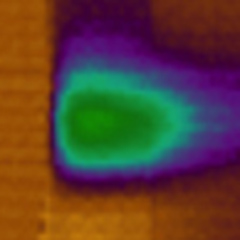Associate Professor Susannah Tye

 Associate Professor Susannah Tye: Functional neuromodulation and novel therapeutics
Associate Professor Susannah Tye: Functional neuromodulation and novel therapeutics
Our research is interdisciplinary, drawing on approaches and techniques from neuroscience, molecular biology, biochemistry, and neuroengineering. We are particularly interested in the potential to use key biomarkers of refractory illness to diagnose and inform treatment decisions, and the possibility that real-time feedback may be used to customise neuromodulatory treatments. Ongoing projects in the lab address both basic and translational neuroscience questions.
Researcher biography
Dr. Susannah Tye joined the Queensland Brain Institute in 2017 and has established a research program within the Asia Pacific Centre for Neuromodulation (QLD, Australia). Before returning to Australia, Dr. Tye directed the Translational Neuroscience Laboratory at the Mayo Clinic (2012-2017). While there she led efforts to develop brain stimulation devices (for rodents and humans) that can quantify neural activity and neurotransmitter dynamics in the living brain. This body of work now forms the basis of the neuropsychiatric arm of the Mayo Clinic's Deep Brain Stimulation Consortium. Her specific research expertise are in utilising voltammetric (electrochemical) recording techniques to monitor rapid, synaptic neurotransmission in the living brain.
Dr. Tye has over ten years of experience studying neuromodulation in preclinical rodent models and human patients. Her long-term goal is to bridge preclinical and clinical studies to maximise translational impact, specifically in terms of improving patient outcomes for those with severe refractory psychiatric illness. Towards this end, she maintains many international collaborations with both clinical and basic science researchers. Dr. Tye also has a longstanding interest in mentoring young scientists to help them expand their skills in preclinical and basic science research and achieve a successful research career.
